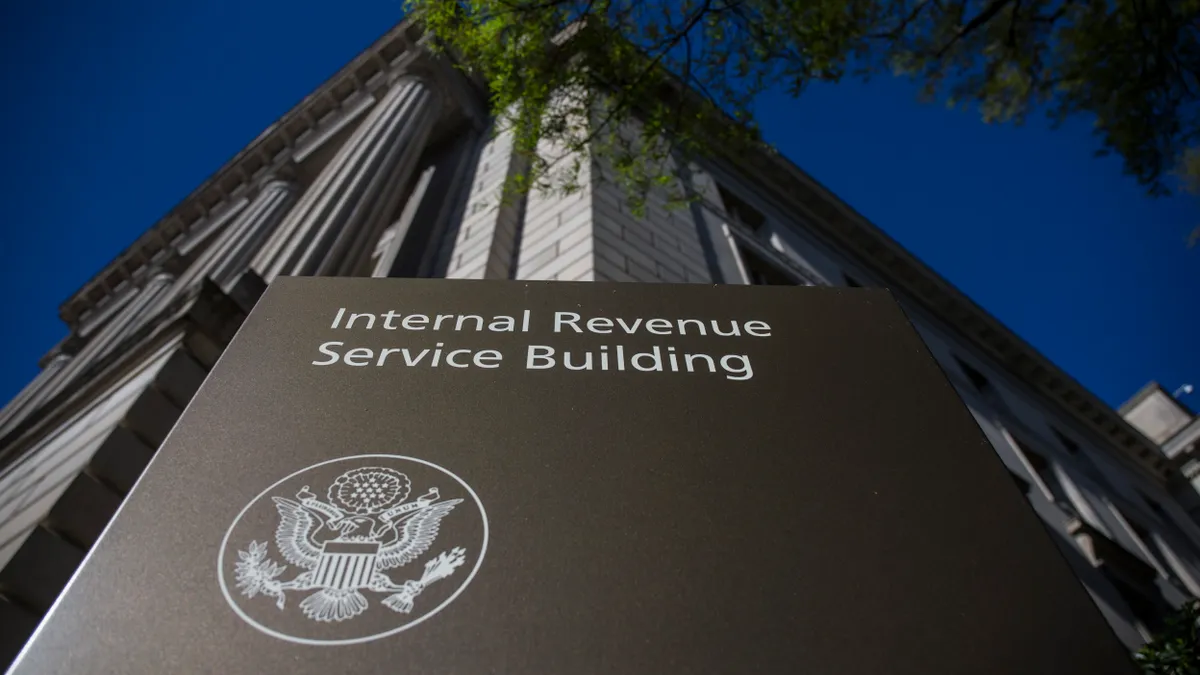The Internal Revenue Service’s recent move to freeze its processing of pandemic-era Employee Retention Credit claims through at least the end of the year was unusual, but it’s a positive step in the right direction for businesses and their tax preparers, according to the National Association of Tax Professionals’s Tom O’Saben.
The ERC is a legitimate refundable tax credit for certain businesses who paid employees during the shut down or when impacted by the COVID-19 pandemic from March 13, 2020 to Dec. 31, 2021, according to the IRS. But the credit got a black eye as it was increasingly linked to scams.
IRS Commissioner Danny Werfel ordered the immediate moratorium “following growing concerns inside the tax agency, from tax professionals as well as media reports that a substantial share of new claims from the aging program are ineligible and increasingly putting businesses at financial risk by being pressured and scammed by aggressive promoters and marketing,” according to a Sept. 14 announcement.
The moratorium came on the heels of multiple warnings from the IRS urging employers to be cautious about filing ERC claims, stressing that business tax filers should guard against third parties promoting what it called ERC “schemes,” charging upfront fees while misleading tax-payers into thinking they will qualify.
O’Saben, director of tax content and government relations for the association, which represents tax preparers across the nation that serve small businesses, applauded the moratorium, calling it a “quantum leap” forward in terms of the IRS showing it is being responsive to a problem.
“The moratorium is a good move in that the IRS has said, ‘wait a minute we’re going to take a break. Rather than talk to you later, we’re going to review things up front,’” O’Saben told CFO Dive in an interview, noting that the NATP and other organizations had requested the pause. “It’s unique and I hope it’s a continuing process. The IRS doesn’t live in a vacuum.”
One main concern for tax professionals is that they are being asked to amend previous annual tax filings for subsequent ERC claims that some companies have made through third parties, he said. The preparers of the returns can be held responsible for erroneous ERC claims even if they did not direct the taxpayers to file the ERC claim, as they are subject to the oversight of the Justice Department’s Office of Professional Responsibility, O’Saben said.
For financial executives and CFOs eager to make sure they are on the right side of ERC claims, O’Saben suggested some steps they should consider.
Companies should talk to their tax preparer about the matter and also go to IRS.gov/erc where they can download the checklist to determine the eligibility of their claims and review what to do.
If an ERC claim hasn’t yet been processed, and the employer is worried that it might be “iffy” or have “cold feet” for any reason, they can withdraw the claim, he said. At the same time, he urged employers to be cautious and get advice from a trusted tax professional. “If it’s too good to be true it probably is,” he said.












